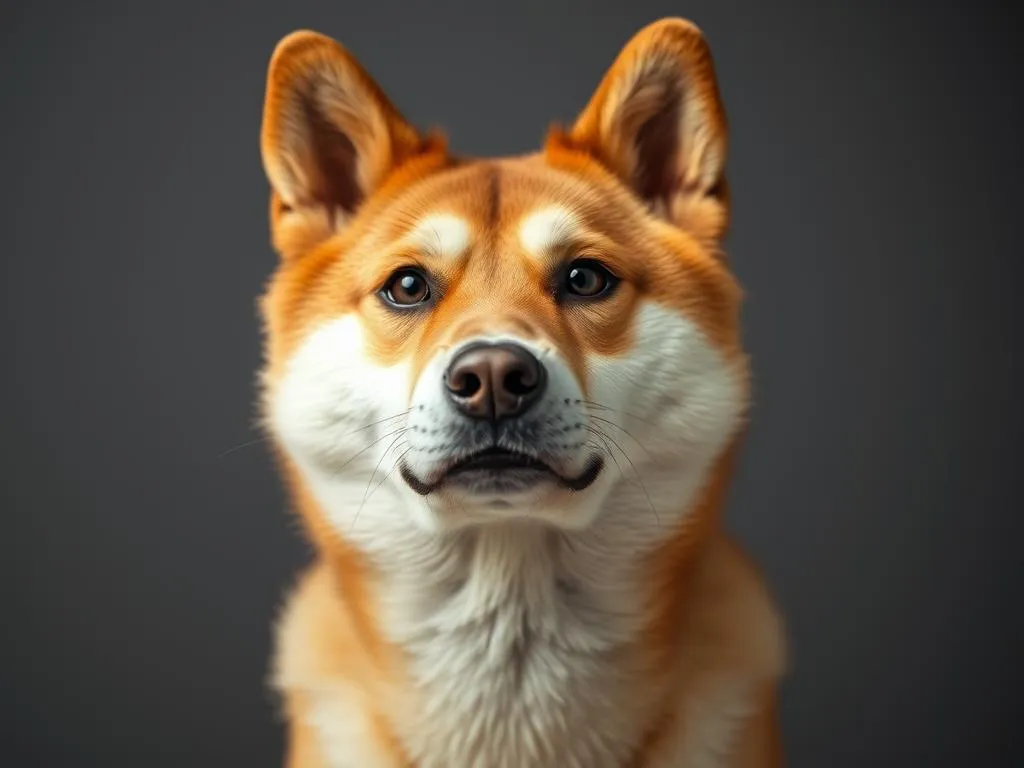
Introduction
Caring for a dog’s health is paramount for ensuring a long, happy life together. As a responsible pet owner, understanding the unique health issues associated with your breed is crucial. Among various dog breeds, the Shiba Inu stands out with its charming personality and remarkable traits. Originating from Japan, the Shiba Inu is known for its spirited nature, fox-like appearance, and bold demeanor, making it a popular choice among dog lovers worldwide.
This article aims to provide comprehensive information on Shiba Inu health problems and offer practical advice on how to care for these adorable companions. We will explore common health issues, preventive care measures, and treatment options, ensuring that every Shiba Inu owner is well-equipped to maintain their pet’s health.
1. Understanding Shiba Inu Health
General Health Characteristics of Shiba Inus
The average lifespan of a Shiba Inu ranges from 12 to 15 years, but like any breed, they can encounter specific health challenges. Typical health issues for Shiba Inus include genetic predispositions, allergies, and orthopedic problems. Being aware of breed-specific traits can aid in early detection and management of these health problems.
Importance of Regular Veterinary Check-ups
Regular veterinary check-ups are essential for maintaining your Shiba Inu’s health. It is generally recommended to schedule a vet visit at least once a year for adult dogs, with more frequent appointments for puppies and senior dogs. These visits typically include:
- Essential vaccinations: Keeping up-to-date with core vaccines is vital for preventing diseases.
- Preventative care: Early detection of potential health issues can lead to more effective treatment and enhanced quality of life.
2. Common Shiba Inu Health Problems
Genetic Predispositions
Shiba Inus are prone to certain hereditary health issues. Common genetic health problems include:
- Hip Dysplasia
- Patellar Luxation
- Eye disorders such as cataracts
Pet owners should consider genetic health tests for Shiba Inu health problems to identify potential risks early. These tests can provide insight into the best preventative measures to take.
Allergies
Allergies are a prevalent concern among Shiba Inus. They can be categorized into:
- Food allergies: Often caused by ingredients such as beef, dairy, or grains.
- Environmental allergies: Triggered by pollen, mold, or dust mites.
Symptoms of allergies in Shiba Inus can manifest as itching, redness, or gastrointestinal upset. Managing allergies typically involves identifying triggers and potentially adjusting the dog’s diet or environment.
Hip Dysplasia
Hip dysplasia is a common orthopedic condition in Shiba Inus, where the hip joint does not fit into the hip socket properly. This can lead to arthritis and pain. Signs of hip dysplasia include:
- Difficulty standing or walking
- Reluctance to jump or run
- Limping
Treatment options may include weight management, physical therapy, or surgery in severe cases.
Eye Conditions
Shiba Inus are susceptible to various eye conditions, including:
- Cataracts: Clouding of the eye lens, which can lead to blindness.
- Glaucoma: Increased pressure in the eye, causing pain and potential vision loss.
Symptoms to watch for include excessive tearing, redness, or squinting. Regular eye check-ups can help in early detection and management.
Patellar Luxation
Patellar luxation, or dislocation of the kneecap, is another condition seen in Shiba Inus. Risk factors include:
- Genetic predisposition
- Rapid growth during puppyhood
Signs include limping or skipping while walking. Treatment options range from lifestyle changes to surgery in more severe cases.
Obesity
Obesity is a growing concern for Shiba Inus, often stemming from overfeeding and lack of exercise. This can lead to serious health problems, including diabetes, joint issues, and heart disease. To maintain a healthy weight:
- Monitor food intake and eliminate table scraps.
- Engage in regular exercise routines.
3. Preventive Health Care
Nutrition and Diet
A balanced diet is crucial for the overall health of your Shiba Inu. High-quality dog food, formulated for their specific needs, can prevent many health issues. Considerations include:
- Protein: Essential for muscle development.
- Fats: Necessary for energy and healthy skin.
- Carbohydrates: Provide energy and aid digestion.
Consult your veterinarian for personalized dietary recommendations and feeding guidelines.
Exercise Requirements
Shiba Inus are energetic and active dogs that require regular physical activity. Insufficient exercise can lead to behavioral issues and obesity. Suggested exercises include:
- Daily walks
- Agility training
- Interactive playtime with toys
Engaging in physical activity not only helps maintain a healthy weight but also strengthens the bond between you and your pet.
Grooming Practices
Regular grooming is essential for maintaining the health and hygiene of your Shiba Inu. Their dense double coat requires:
- Brushing: At least once a week to reduce shedding and prevent matting.
- Bathing: As needed, but not too frequently to avoid stripping natural oils.
Additionally, pay attention to nail trimming, ear cleaning, and dental care to prevent various health issues.
4. Recognizing Signs of Illness
Behavioral Changes
Changes in behavior can indicate underlying health issues. Common signs to watch for include:
- Increased aggression or withdrawal
- Changes in eating habits
- Excessive barking or whining
Tracking your Shiba Inu’s behavior can help identify problems early on, allowing for timely intervention.
Physical Symptoms
Monitoring your dog’s physical health is equally important. Key symptoms to look out for include:
- Lethargy or decreased energy levels
- Weight loss or gain
- Changes in coat condition
If you notice any concerning signs, don’t hesitate to consult your veterinarian.
5. Treatment Options for Shiba Inus
Conventional Veterinary Care
When it comes to treating health problems in Shiba Inus, conventional veterinary care remains the first line of defense. This may include:
- Prescription medications for allergies or pain
- Surgical procedures for conditions like hip dysplasia or patellar luxation
Always follow your veterinarian’s advice and guidelines for effective treatment and care.
Alternative Therapies
Some pet owners may consider alternative therapies for their Shiba Inus. These can include:
- Acupuncture: Used for pain management and to improve mobility.
- Herbal remedies: Can support overall health and wellness.
It’s essential to consult with your veterinarian before starting any alternative treatments to ensure they are safe and appropriate for your dog.
6. Frequently Asked Questions (FAQs)
What is the average lifespan of a Shiba Inu?
The average lifespan of a Shiba Inu is between 12 to 15 years, depending on factors such as genetics, diet, and overall care.
How can I tell if my Shiba Inu is overweight?
You can determine if your Shiba Inu is overweight by checking their body condition score. You should be able to feel their ribs without excess fat covering, and they should have a visible waist when viewed from above.
Are Shiba Inus prone to specific diseases?
Yes, Shiba Inus are prone to certain health issues, including hip dysplasia, patellar luxation, allergies, and eye conditions.
What vaccinations are necessary for Shiba Inus?
Core vaccinations for Shiba Inus typically include rabies, distemper, parvovirus, and adenovirus vaccines. Consult your veterinarian for a tailored vaccination schedule.
How can I improve my Shiba Inu’s dental health?
Regular dental care is crucial for your Shiba Inu’s health. Brush their teeth several times a week, provide dental chews, and schedule regular veterinary dental cleanings.
Conclusion
Understanding Shiba Inu health problems is vital for any owner looking to provide the best care for their beloved pet. By being aware of common health issues, maintaining regular veterinary visits, and implementing preventive health measures, you can help your Shiba Inu lead a healthy and fulfilling life. Remember that a healthy dog is a happy dog, and investing time and effort into their care is one of the most rewarding aspects of pet ownership. Enjoy the companionship of your healthy Shiba Inu, and cherish every moment together!









